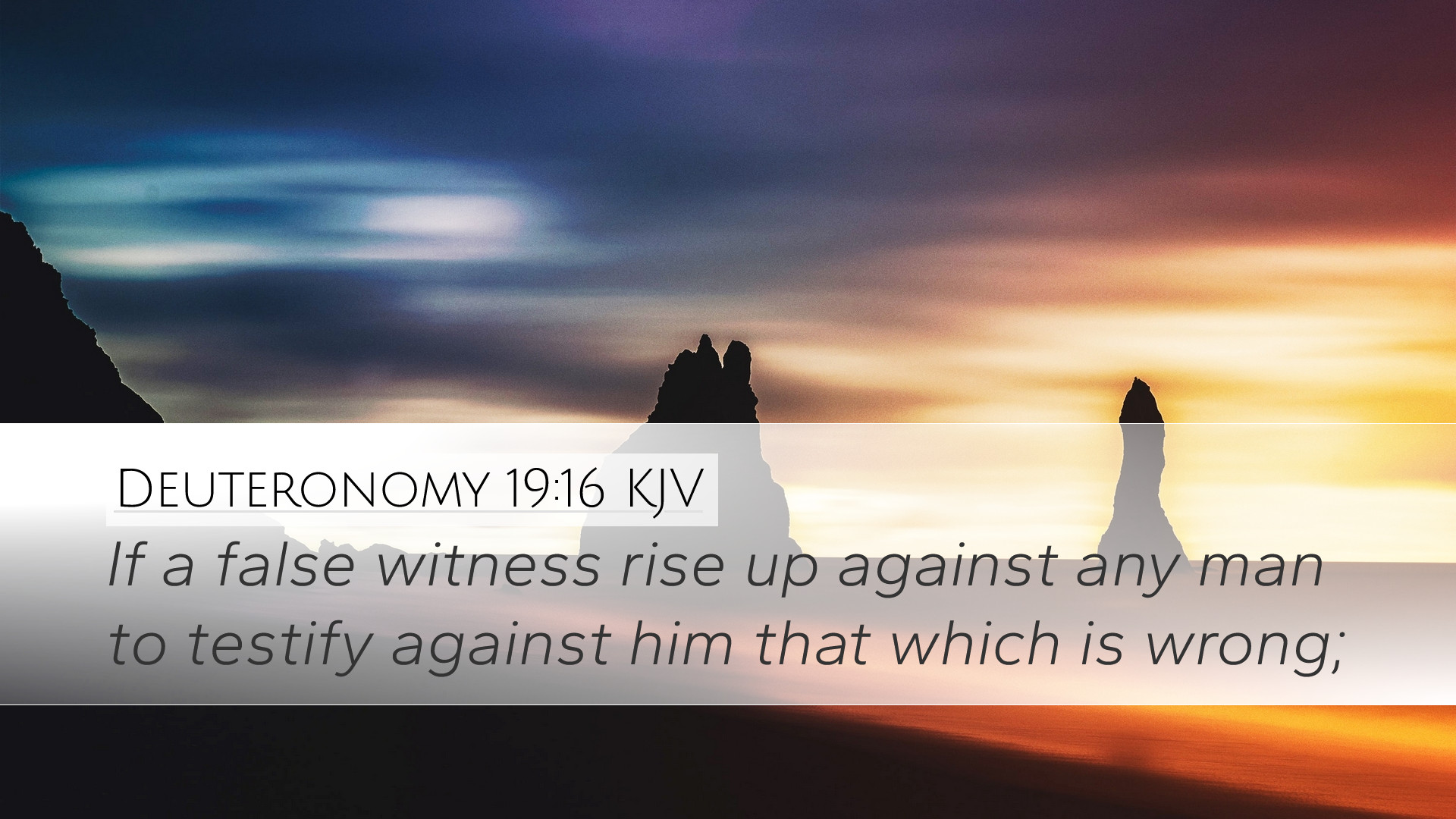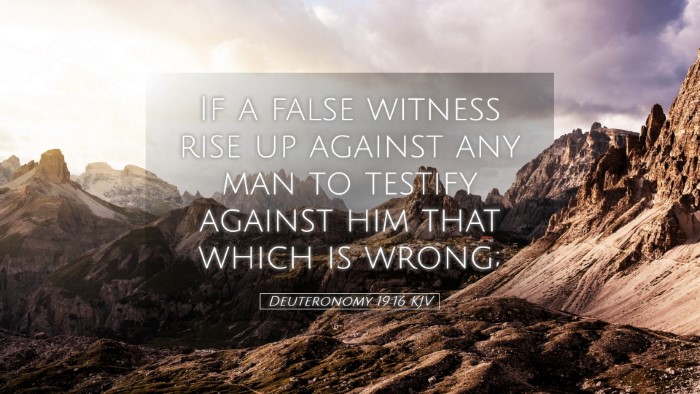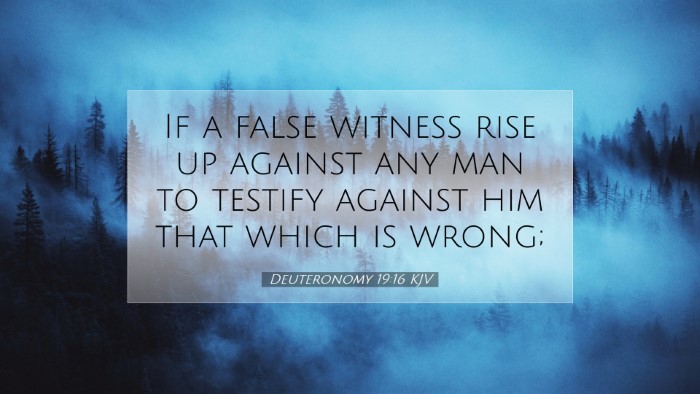Commentary on Deuteronomy 19:16
Deuteronomy 19:16 states: "If a false witness rise up against any man to testify against him that which is wrong."
Introduction
This verse forms part of a broader legal framework established in the book of Deuteronomy, which outlines the principles of justice and the importance of integrity in testimony within the community of Israel. In this context, a false witness is a grave offense, undermining not only individual lives but the fabric of societal trust.
Overview of the Commentaries
Insights from prominent public domain commentaries shed light on the theological and practical implications of this verse. Notably, the works of Matthew Henry, Albert Barnes, and Adam Clarke provide a comprehensive understanding of the significance of truthful testimony.
The Nature of the False Witness
Matthew Henry describes the false witness as a significant social ill that can lead to widespread corruption in judicial matters. This statement emphasizes the heavy responsibility that rests on those who bear witness. Henry points out that a community governed by falsehood is one that is bound for instability, as truth serves as the foundation of justice.
Albert Barnes elaborates on the legal implications of this verse, suggesting that the rise of a false witness can lead to severe consequences, potentially affecting both the accused and the broader community. Barnes highlights that the act of bearing false witness is not merely a breach of legal code but a moral violation that robs individuals of their honor and dignity.
Adam Clarke emphasizes the societal role of a witness, explaining that one who testifies falsely disrupts the divine order of truth and justice. He reflects on the gravity of such actions, reminding readers that God's commandments necessitate truthfulness as a hallmark of righteousness.
The Role of Testimony in Community Life
Testimony serves as a foundational aspect of social and judicial norms within the Israelite community. According to Matthew Henry, genuine testimony is critical for ensuring justice. The harm caused by false witnesses extends beyond the individual to the community at large, impacting public trust and order.
Adam Clarke notes that the efficacy of this legal instruction stems from God's desire for His people to live in a socially coherent environment where integrity is upheld. The integrity of communal life hinges on each individual's willingness to uphold the truth.
Theological Implications
This commandment not only addresses legalities but also touches upon deeper theological themes of righteousness, accountability, and divine justice. Albert Barnes posits that the basis of God’s law is intrinsically linked to His nature. Therefore, the instruction against false witnessing reflects God's unchanging character and His desire for truth among His people.
Moreover, Matthew Henry suggests that this commandment reveals God's concern for the vulnerable, as false testimony often preys upon those without the means to defend themselves. The call for justice is not only a legal stance but a divine act of protection for the innocent.
Practical Applications for Today
The relevance of this verse extends into modern contexts, urging believers to cultivate environments where honesty and integrity are valued. Adam Clarke suggests that maintaining a commitment to truth in testimony reflects the character of Christ, who is the ultimate embodiment of truth.
- Integrity in Witness: Just as the Israelites were called to uphold truth, modern believers are invited to reflect God's character through their testimonies.
- Community Accountability: Churches and communities should foster atmospheres of accountability and grace, ensuring that truth prevails and justice is served.
- Protection of the Vulnerable: Emphasizing the protection of those who are defenseless, this command invites modern Christians to advocate for justice and truth for all.
Conclusion
In conclusion, Deuteronomy 19:16 emphasizes the significant weight of truthful testimony and the dire consequences of false witness. By engaging with the commentaries of esteemed theologians, we gain a clearer understanding of the importance of integrity and accountability in both historical and contemporary contexts. It is a call to each of us to embody truth in our lives and communities, reflecting the character of God and the ethos of His kingdom.


